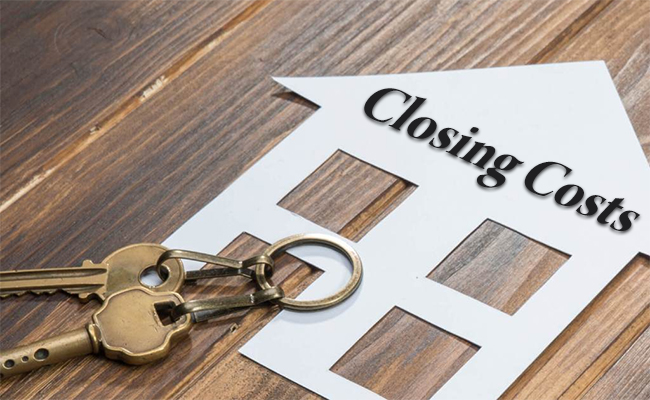
Why Do Closing Costs Vary with Different Lenders?
If you’re in the market to buy a home you should be ready to pay around 2 to 5 percent in closing costs based on the purchase contract price.
At the same time, moderate- to high-cost homes $1 million and above typically end up being a lower percentage. How could there be such a difference? Let’s find out below.
Closing costs when you buy or refinance a home
The following are a few very important things you need to know about how closing costs work:
• Most lenders combine all of their lower charges into one fee known as the “origination fee” for to keep it simple. More than likely, it turns out be the largest closing cost.
• You may be able to haggle the lender’s fee to see if they’ll reduce it.
Your ability to ask your loan officer to reduce specific closing costs varies according to the property location
The lender will offer you a “loan estimate” which itemizes fees or services you can get elsewhere and those that are not flexible.
What’s included in closing costs?
There’s a lot of little fees in a borrower’s closing costs. These are categorized as lender costs, third-party fees, state & govt. fees, and prepaid items.
However the most expensive closing costs are:
• Origination fee (0-2% of loan amount) — Sometimes includes other lender or broker fees to arrange the loan
• Points or “discount fee” (0-1.5% of loan amount) — Optional fee paid to bring your interest rate down
• Title insurance ($300-$2,500+) — Fee you pay to confirm the current owner(s), liens, encumbrances, and protects the lender and buyer against defects in transferring ownership
• Escrow fees ($350-$1,000+) — Fees paid to a licensed third-party “escrow company” that handles funds and facilitates the real estate transaction
• Home appraisal ($500-$1,000+) — Fee to determine if the home’s value for a purchase or refinance transaction
• Prepaids; taxes and insurance ($1,000-$4,500+) — Typically the borrower will pay from six- to nine-months of property taxes and a full year of homeowners insurance on a purchase loan. Refinances may have lower upfront requirements.
Any tips to avoid paying closing costs?
The first way to avoid paying for closing costs is to request the seller to pay them. This usually works best in a buyers’ market (when the seller’s home has not received many offers) and is known as a “seller concession”.
The second method to avoid paying closing costs is by applying for a “no closing cost mortgage” with a mortgage broker or lender. In most cases, this means you’re getting a higher interest rate and will pay significantly more interest over the life of your loan than if you paid closing costs and got a lower rate.
The third way is not widely available on purchase loans but some lenders will allow you to include your closing costs into the new loan amount. If in a refinance it can be included. To illustrate, if you get a $425,000 mortgage and have $7,200 in closing costs, you might be offered a new loan of $432,200 loan and not pay any closing costs. This way you keep the low rate and add just $7,200.
A.) No closing costs with higher rate
If you had a $425,000 loan at 5.00% your payment is $2,281/month and interest over the life of the loan is $396,337.
B.) Closing costs bundled into loan at low rate
If you had a $432,200 loan at 4.25% your payment is $2,090/month and interest paid over the life of loan is $327,668
It appears scenario B is the clear winner.
When you buy a home in California, the closing costs typically fall between one and three percent of the sale price. But that percentage usually goes down as home price goes up.
For example, here’s how closing costs might add up for a variety of home prices:
– $300,000 condo: $4,500-$9,000 (1.5-3%)
– $500,000 home: $5,000-$10,000 (1-2%)
– $750,000 home: $5,000-$10,000 (1-1.5%)
– $1,000,000 home: $5,000-$10,000 (1-1.25%)
Remember these estimates are only a range. Your own closing costs will vary by lender. Be sure to compare at least three loan estimates to find the lowest-cost loan.
Processing fee: $300-$795
If this is not part of the origination fee, this fee is for the person who collects, organizes and provides your income, assets and employment documents to the underwriter.
Underwriting fee: $350-$1,500
Your loan may be eligible for the automated underwriting systems (AUS) electronically underwritten, or underwritten by an actual person. If your application is for a loan with alternate income documentation the fee is usually over $1,000 and done by a human.
Even if you use the automated system and have an electronic approval, a human underwriter still needs to confirm the accuracy of your employment dates, your pay stubs, and tax returns. There’s a lot of verifying information and making sure everything adds up.
Administrative fee: $300+
It is pretty common to have the origination fee include any Administrative fees, and if not, this can add $300-$600 at closing.
How most borrowers see closing costs
For the most part, the only thing most borrowers care about is what the total fees are because you won’t see it every month or year unless you really like to refinance your home. Understand that if your loan amount is not very big like $250,000 or less, you may pay a higher percentage because lenders have to charge a minimum fee on each loan.
